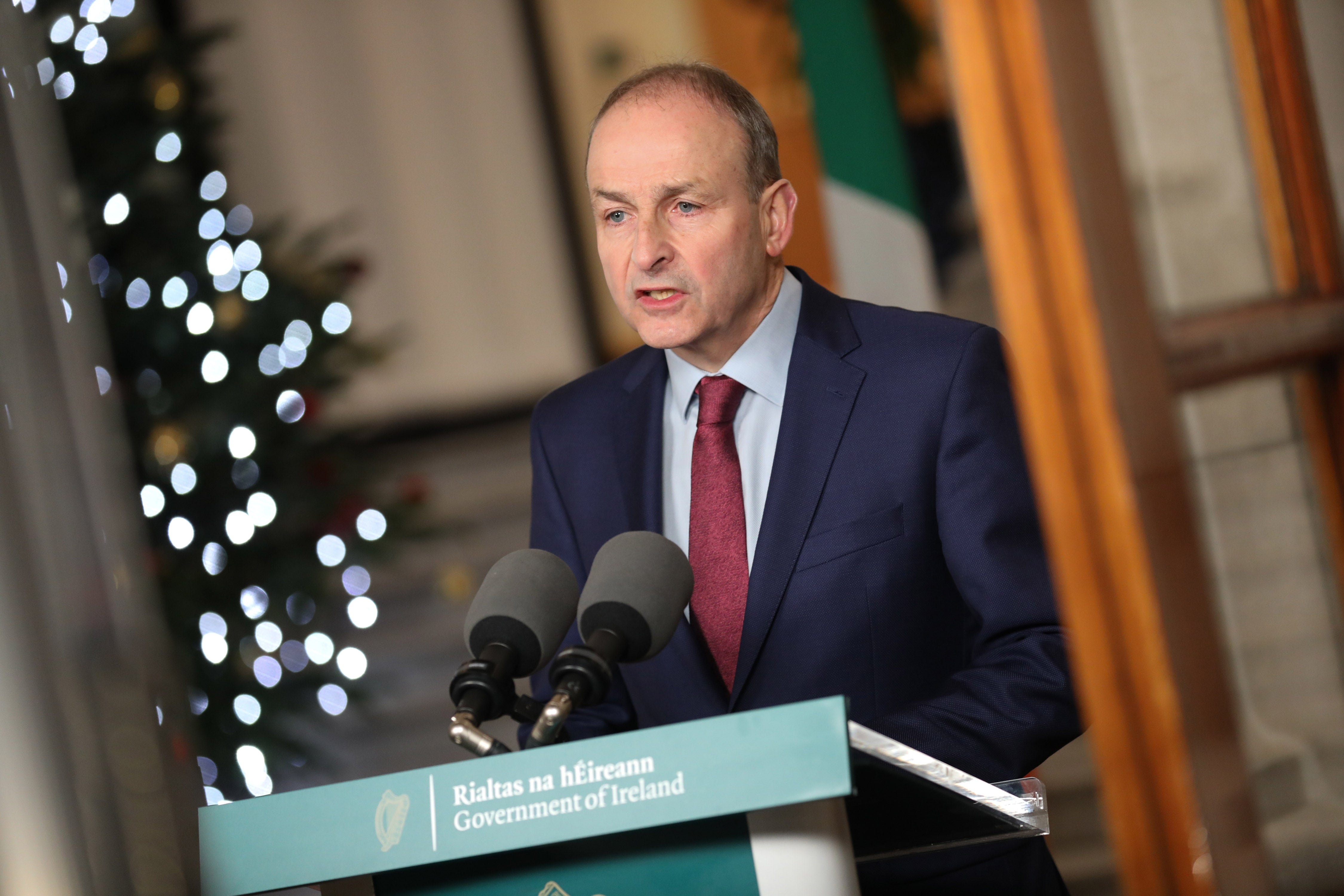Taoiseach and Tanaiste mark 100th anniversary of signing of Anglo-Irish Treaty
The document was signed in 10 Downing Street on December 6, 1921.

The Taoiseach and the Tanaiste marked the 100th anniversary of the signing of the Anglo-Irish Treaty at an exhibition at Dublin Castle.
The Treaty, 1921: Records from the Archives exhibition opens up historical records, official documents and private papers for the first time, including the first public presentation of both the Irish and British copies of the Treaty document.
The Treaty formally ended the War of Independence, leading to the handover of power from the British to a new independent Irish government.
The document was signed in 10 Downing Street on December 6, 1921.
Using contemporary reportage, images and footage, the exhibition locates the Treaty negotiations in the political context of the Irish revolution and a world turned upside down by the First World War.
Beginning with the exploratory talks between Eamon de Valera President of Dail Eireann, and then British Prime Minister David Lloyd George during the summer of 1921, it details the work of the Irish plenipotentiaries and their secretariat, by presenting the documentary record that they left behind.
The exhibition also chronicles day-to-day life in London for the men and women who made up the Irish delegation, from parties attended, dinners hosted and appearances at theatre and gala performances, to the tense final days and hours leading to the signing of the Treaty just after 2am on 6 December 1921.
It also documents the delegation’s return to Dublin, and the Dail Eireann cabinet meeting that pointed to the split in the independence movement that emerged over the terms of the Treaty, and the divisions that would lead to Civil War.
While the Treaty established an independent Ireland, it did not include Northern Ireland which remained outside the state.
We were fascinated with what is an outstanding exhibition on the treaty records and archives.
Taoiseach Micheal Martin defended the decision not to hold a state event to mark the signing of the Treaty.
“This (exhibition) is much more substantive and the whole series like this brings to the public, for the first time, the actual minutes and records of the time,” he added.
“That’s a far greater substance than one fly-over on a given day and this will be a year-long.
“This is one of many events to remember and reflect both the Treaty and the events after the Treaty.”
Mr Martin added: “It’s a rolling period from post-1916 right through to the truce in July up to the Treaty negotiations.
“We were fascinated with what is an outstanding exhibition on the treaty records and archives.
“There are minutes and memos and correspondence between key participants, between London and Dublin.
“People will make their own assessments and judgements. It is a wonderful insight into our history and the events that led to the foundation of modern Ireland.”
Tanaiste Leo Varadkar said: “It’s an amazing exhibition. I’m really interested in politics and history, but I learned things that I didn’t know.
“The size of the delegation, the number of women involved and also to see some of the artefacts, some of the things like little notes they pass across the table, the kind of things that would be text messages these days.”
Minister for Tourism, Culture, Arts, Gaeltacht, Sport and Media Catherine Martin said: “This exhibition is critical in terms of our understanding of the negotiations and the signing of the Treaty and I would like to thank the National Archives for developing this important exhibition by placing the authenticity of the archival record at the centre of the exhibition.”
Bookmark popover
Removed from bookmarks